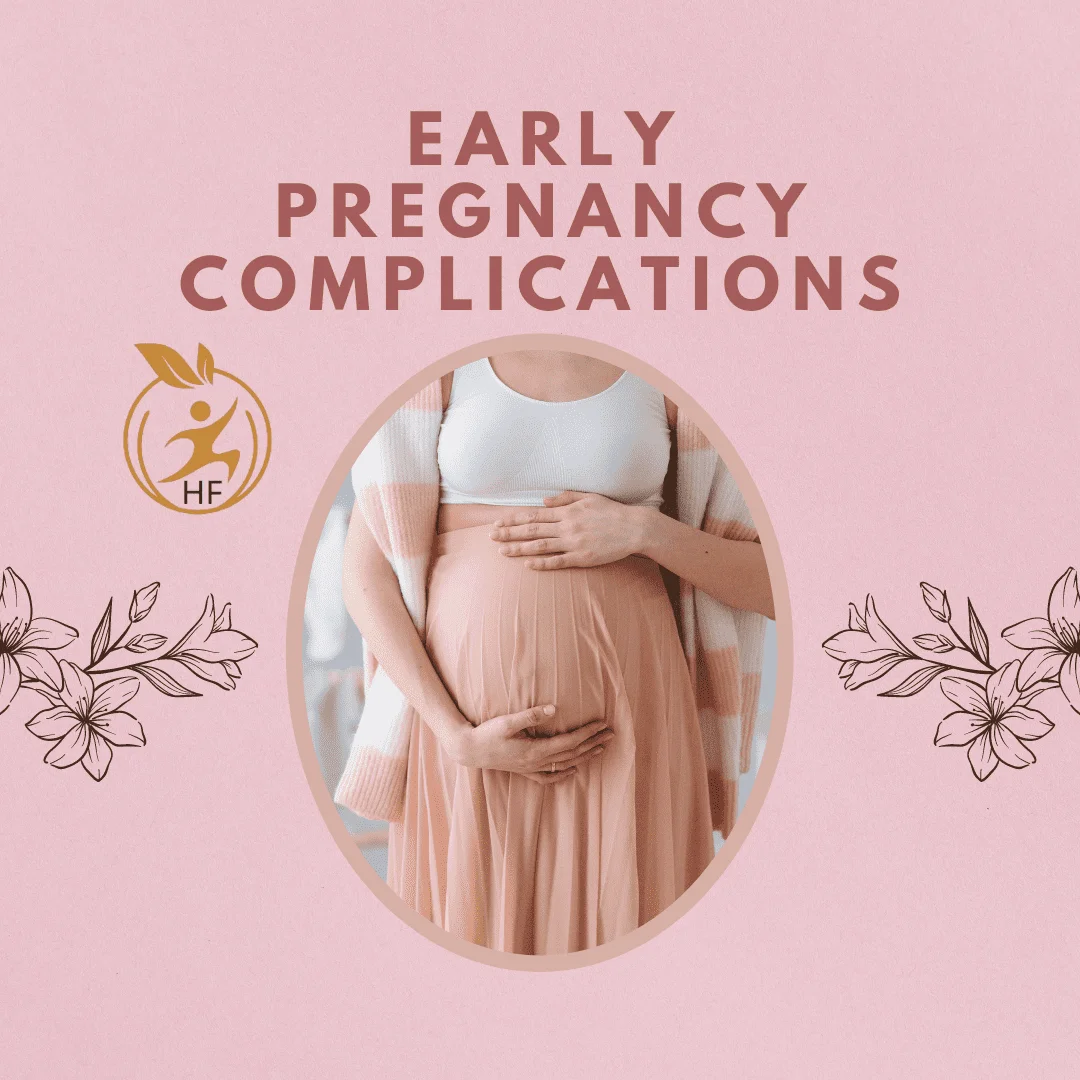Entering pregnancy at an older age, particularly after 35, can bring both joy and concern for many expectant mothers. While the decision to start a family later in life is increasingly common, it’s crucial to be aware of potential complications that may arise during early pregnancy. In this comprehensive guide, we’ll delve into the unique challenges faced by women over 35 during the initial stages of pregnancy and provide valuable insights to optimize health and well-being for both mother and baby.
Understanding the Risks:
Women over 35 are at a higher risk of experiencing certain complications during pregnancy compared to their younger counterparts. These risks include:
- Chromosomal Abnormalities: Advanced maternal age increases the likelihood of chromosomal abnormalities such as Down syndrome.
- Gestational Diabetes: Older mothers have a higher risk of developing gestational diabetes, which can lead to complications for both mother and baby if left untreated.
- Hypertension and Preeclampsia: The risk of developing hypertension and preeclampsia, a condition characterized by high blood pressure and organ damage, is elevated in older pregnant women.
- Miscarriage: The risk of miscarriage also increases with age, particularly in the first trimester.
Navigating Early Pregnancy:
Despite the increased risk of complications, many women over 35 go on to have healthy pregnancies and deliver healthy babies. Here are some essential tips for navigating early pregnancy after 35:
- Preconception Planning: Consult with a healthcare provider before conception to address any pre-existing health conditions and optimize your overall health.
- Prenatal Screening: Undergo prenatal screening tests, including ultrasound and genetic testing, to assess the risk of chromosomal abnormalities and other genetic disorders.
- Healthy Lifestyle Choices: Adopting a healthy lifestyle that includes regular exercise, a balanced diet, adequate sleep, and stress management can help mitigate the risk of complications.
- Regular Prenatal Care: Attend all scheduled prenatal appointments and follow your healthcare provider’s recommendations for monitoring your pregnancy closely.
- Stay Informed: Educate yourself about the signs and symptoms of potential complications, such as gestational diabetes and preeclampsia, and seek prompt medical attention if you experience any concerns.
Early pregnancy complications after 35
Navigating early pregnancy difficulties after 35 necessitates a comprehensive grasp of the unique obstacles that come with increasing mother age. Women over the age of 35 are more likely to experience difficulties such as chromosomal abnormalities, gestational diabetes, hypertension, and miscarriage. These concerns highlight the necessity of seeking proactive prenatal care and leading a healthy lifestyle to reduce potential dangers. Expectant moms can improve their health outcomes and make their pregnancy journey go more smoothly by being informed and seeking timely medical care when necessary.
Managing pregnancy after 35
Pregnancy after 35 necessitates special care due to increasing risks. Prenatal care is essential for closely monitoring these risks and taking appropriate precautions to ensure a safe pregnancy. Adopting a healthy lifestyle that includes exercise, a balanced diet, and stress management improves maternal health. Regular discussions with healthcare providers prior to conception, as well as attendance at prenatal checkups, are required for efficient pregnancy management after age 35.
Health tips for older pregnant women
Here are some basic health tips for older pregnant women:
- Regular prenatal checkups: Schedule regular prenatal visits with your health care provider to closely monitor your health and your baby’s developmen t. These visits allow early detection and management of any potential complications.
- Maintain a balanced diet: * Eat a balanced diet rich in fruits, vegetables, lean proteins, whole grains, and dairy products. Adequate nutrition is essential for maternal health and fetal growth.
- Stay hydrated: Drink plenty of water throughout the day to keep your body hydrated. Dehydration can lead to a variety of complications, including premature birth and urinary tract infections.
- Manage weight gain: Aim for healthy weight gain during pregnancy, as recommended by your health care professional. Excessive weight gain can increase the risk of gestational diabetes and high blood pressure.
- Exercise regularly: Do safe and appropriate exercises recommended by your doctor, such as walking, swimming, or prenatal yoga. Exercise helps improve blood circulation, relieve discomfort and prepare the body for work.
- Take prenatal vitamins: Make sure to take prenatal vitamins prescribed by your health care professional. These vitamins provide essential nutrients such as folic acid, iron and calcium, which are essential for a healthy pregnancy.
- Stress management: Practice relaxation techniques such as deep breathing, meditation, or prenatal massage to reduce stress levels. High stress levels can harm the health of the mother and fetus.
- Get enough rest: Try to get enough rest and sleep every night to maintain your overall health. Pregnancy can be physically exhausting, so listen to your body and rest if necessary.
- Avoid harmful substances: Avoid smoking, drinking alcohol, and using recreational drugs during pregnancy as they can pose serious health risks to the baby.
- Stay informed: Learn about common pregnancy problems and potential complications. Knowing what to expect and when to see a doctor can help you make informed decisions throughout your pregnancy journey.
By following these health tips and working closely with your healthcare professional, you can improve your health and well-being during pregnancy, no matter your age.
Gestational diabetes in older mothers
Gestational diabetes is a particular concern for older mothers during pregnancy. As a woman ages, her risk of developing gestational diabetes increases. This condition occurs when the body cannot produce enough insulin to meet the increased needs of pregnancy, resulting in high blood sugar levels. Older mothers may already have factors such as insulin resistance or impaired glucose metabolism, which increase their risk.
Managing gestational diabetes in older mothers requires careful monitoring and proactive measures. Health care providers usually recommend diet changes, regular exercise, and sometimes insulin treatment to keep blood sugar levels in a healthy range. Close monitoring through regular prenatal visits and blood sugar testing is essential to prevent complications for both mother and baby.
Complications of uncontrolled gestational diabetes include macrosomia (high birth weight), which can increase the risk of birth injury and cesarean section. In addition, babies born to mothers with gestational diabetes may experience hypoglycemia (low blood sugar) soon after birth and are at greater risk of developing type 2 diabetes later in life.
To manage gestational diabetes effectively, older mothers should work closely with their health care team, follow recommended treatment plans, and make lifestyle changes as necessary. By controlling blood sugar levels and monitoring fetal health, older mothers with gestational diabetes can have healthy pregnancies and give birth to healthy babies.
Preeclampsia risks in advanced maternal age
Preeclampsia, a potentially serious complication of pregnancy characterized by high blood pressure and signs of damage to other organ systems, poses increased risks to women of advanced maternal age. As a woman ages, especially after the age of 35, the risk of developing preeclampsia increases significantly. This pathological condition can occur during the second half of pregnancy or after birth and requires careful monitoring and rapid intervention to prevent complications for both mother and child.
The exact reasons behind the increased risk of preeclampsia in older mothers are not fully understood, but factors such as underlying health conditions, decreased blood vessel function, and poor placental growth may contribute. Preeclampsia can lead to complications such as preeclampsia, seizures, stroke, organ failure, and poor fetal growth.
Managing the risk of preeclampsia in advanced maternal age includes vigilant prenatal care and early detection. Health care providers often recommend regular blood pressure monitoring, testing for proteinuria (excess protein in the urine, a major indicator of preeclampsia), and other evaluations to monitor the health of the mother and fetus.
In addition, older mothers may be advised to adopt lifestyle changes, such as maintaining a healthy weight, staying physically active, managing chronic conditions such as high blood pressure or diabetes, and avoiding smoking and excessive alcohol consumption. In some cases, health care providers may prescribe low-dose aspirin as a preventative measure for women at risk of developing preeclampsia.
It’s particularly critical for older moms to be educated and aware of the symptoms of preeclampsia, which include sudden swelling of the hands and face, chronic headaches, visual abnormalities, and abdominal pain. Healthcare professionals can intervene and manage preeclampsia in a timely manner by promptly reporting any concerning signs. This lowers the risk of complications and ensures the best possible results for mother and baby.
Navigating early pregnancy after 35 presents unique challenges, but with proper planning, prenatal care, and lifestyle adjustments, women can optimize their health and reduce the risk of complications. By staying informed, proactive, and seeking support from healthcare professionals, expectant mothers can embark on this journey with confidence and peace of mind, ultimately ensuring the best possible outcome for both themselves and their precious little ones.




